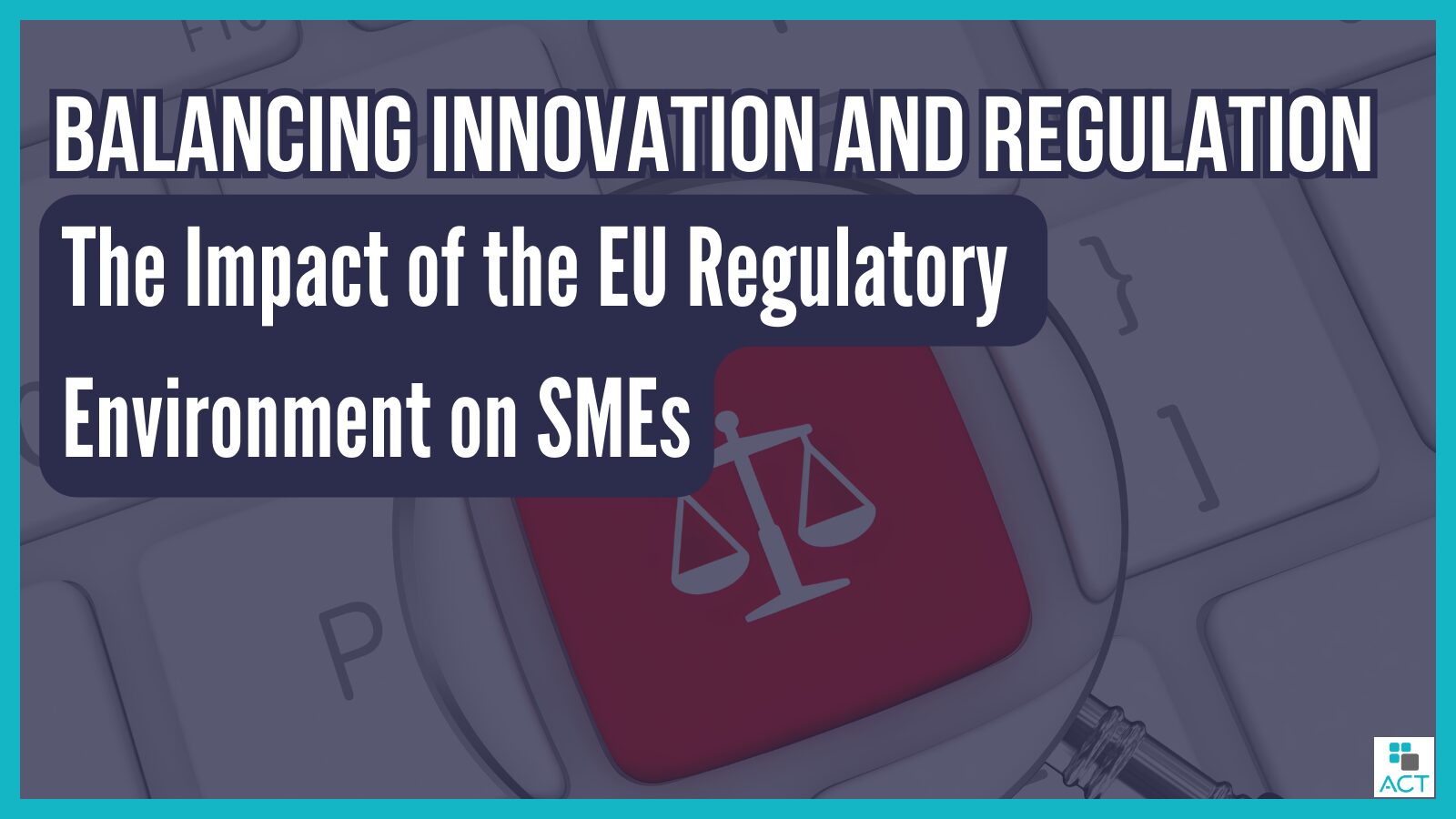Apple, Google, and other industry leaders have recently announced that several of their highly anticipated AI-driven features will not be available to their European Union (EU) customers at launch due to concerns around the implementation of the Digital Markets Act (DMA) and the General Data Protection Regulation(GDPR). Their announcements underscore a critical issue facing policymakers regulating the digital economy: finding the right balance between regulation and innovation.
As policymakers navigate this complex landscape, it’s essential to consider how regulations designed to promote competition might inadvertently stifle the groups they aim to protect: small and medium-sized enterprises (SMEs).
The DMA’s effect on AI tools and potential risks
New AI-driven platform features promise significant advancements in user experience and functionality, exciting consumers and developers alike. For example, Apple Intelligence makes it easy for developers to integrate AI in their own apps, while Google’s AI-powered Assistant tools offer improved personalisation and efficiency. Unfortunately, due to EU-specific regulatory requirements, the rollout of these features has been delayed for EU developers and their users.
Despite theories that Apple is acting alone in its decision to delay the AI rollout to ‘further disable competition’, additional industry leaders like Google also delayed the introduction of AI tools in the EU due to concerns about the implications of complying with elements of various EU regulations. All concerns point back to potential data privacy concerns brought forward by GDPR implementation and security risks posed by exposing new features to third parties, an action the DMA would necessitate.
The broader impact on SMEs
The delay of exciting AI features under the DMA has even broader implications for SMEs in the EU. Innovative tools like Apple Intelligence and SharePlay screen sharing can be game changers for small businesses, offering advanced AI capabilities and improved remote collaboration. By limiting access to these tools, the DMA is likely to hinder the ability of EU developers to compete on a global scale.
“As a small business, it’s essential that you’re able to move fast and jump on new platform capabilities and features. Complex regulations like the DMA make it a lot harder to work on amazing products and features for our users than we’d like.” – donnywals.com
Statistics show that the regulatory environment in the EU has already led to significant disparities in the success and longevity of EU startups compared to those in other competitive markets. For instance, the United States boasts about three times as many startups than the EU. Additionally, in 2022, venture capital investment in Europe was $34.3 billion, significantly lower than the $116.7 billion in the United States and $62.5 billion in Asia. This investment gap reflects the impact of the current regulatory climate on EU tech startups’ ability to scale, innovate, and – ultimately – exist. The stringent requirements of the DMA risk widening this disparity even further, making it more difficult for EU startups to compete globally.
A call for balanced regulation
When regulating, policymakers must strike a balance between competition, consumer safety, and innovation. While some basic regulatory guardrails found in the DMA and GDPR are welcome and necessary, these regulations will stifle innovation and growth when they become too stringent. We support a balanced regulatory approach that protects developers and their users without hindering innovation and competitiveness.
It is crucial for policymakers to recognise that regulations aimed at fostering competition and protecting consumers can sometimes hinder the very groups they aim to support. Through future market investigations and ongoing implementation of the DMA, we hope that the European Commission will acknowledge the delicate balance required to nurture competition without compromising the secure frameworks and competitive environments that have enabled SMEs around the globe to flourish.
